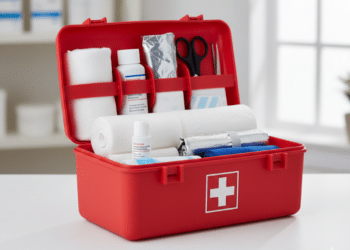The top five innovations in the health sector for 2025 include generative AI in clinical workflows, augmented reality (AR) and virtual reality (VR) in surgery and patient care, personalised medicine driven by genomics and AI, remote patient monitoring via Internet of Medical Things (IoMT), and advancements in 3D bioprinting for prosthetics and tissue engineering.
Generative AI in Clinical Workflows
Generative AI tools are increasingly integrated into daily clinical work, helping to reduce staff shortages and burnout by streamlining administrative and time-consuming tasks in healthcare settings. These tools enhance efficiency, enabling healthcare professionals to focus more on patient care.
AR and VR Enhancing Surgery and Rehabilitation
Augmented reality and virtual reality technologies have moved from experimental to essential in 2025. Surgeons utilise AR overlays for enhanced precision during operations, while VR supports patient rehabilitation, pain management, and treatment of cognitive conditions. Devices like Apple’s Vision Pro and Meta’s Quest 3 are at the heart of this transformation.
Genomics and Personalised Medicine
Personalised medicine is rapidly advancing through genomic analysis combined with AI. Projects like newborn genome sequencing for early screening of rare diseases enable tailored treatments, improving outcomes and reducing ineffective trial-and-error approaches. This innovation is becoming a standard practice in healthcare.
Remote Patient Monitoring and IoMT
Remote Patient Monitoring (RPM) devices, including wearables and medical monitors, continuously stream patient data to clinicians, improving chronic disease management and reducing hospital readmissions. The widespread adoption of IoMT technology supports ageing populations and is a critical part of healthcare delivery in 2025.
3D Bioprinting and Regenerative Medicine
3D bioprinting is revolutionising prosthetics, implants, tissue engineering, and even the development of organ scaffolds and bone grafts. Coupled with AI, these technologies enable the creation of customised, biocompatible medical components, enhancing both elective and emergency care with tailored and affordable solutions.
These innovations collectively enhance patient care, enable early diagnosis and personalised treatment, reduce strain on the healthcare system, and open new frontiers in regenerative medicine and digital health.
If more granularity is needed on any of these innovations or the leading contributors, please indicate so that further detailed exploration can be conducted.










